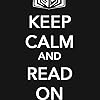Classic books that I thought would be uninteresting but were actually very enjoyable.
138 books ·
18 voters ·
list created August 2nd, 2014
by ~†♬κäℜīš♬†~ (votes) .
Tags:
classics
~†♬κäℜīš♬†~
401 books
9 friends
9 friends
☆Ruth☆
5223 books
45 friends
45 friends
Gustave
769 books
92 friends
92 friends
Jenny
2031 books
441 friends
441 friends
Malika
429 books
50 friends
50 friends
Chris
2791 books
63 friends
63 friends
Jennifer
5145 books
93 friends
93 friends
Michael
152 books
36 friends
36 friends
More voters…
Comments Showing 1-5 of 5 (5 new)
date newest »
newest »
 newest »
newest »
message 1:
by
Malika
(new)
Aug 04, 2014 11:51AM
 Is Girl With A Pearl Earring not a classic?
Is Girl With A Pearl Earring not a classic?
reply
|
flag
They are supposed to be OLD, how old? that is on another list similar to this one:
A classic, according to the usual definition, is an old author canonised by admiration, and an authority in his particular style. The word classic was first used in this sense by the Romans. With them not all the citizens of the different classes were properly called classici, but only those of the chief class, those who possessed an income of a certain fixed sum. Those who possessed a smaller income were described by the term infra classem, below the pre-eminent class. The word classicus was used in a figurative sense by Aulus Gellius, and applied to writers: a writer of worth and distinction, classicus assiduusque scriptor, a writer who is of account, has real property, and is not lost in the proletariate crowd. Such an expression implies an age sufficiently advanced to have already made some sort of valuation and classification of literature. 2
At first the only true classics for the moderns were the ancients. The Greeks, by peculiar good fortune and natural enlightenment of mind, had no classics but themselves. They were at first the only classical authors for the Romans, who strove and contrived to imitate them. After the great periods of Roman literature, after Cicero and Virgil, the Romans in their turn had their classics, who became almost exclusively the classical authors of the centuries which followed. The middle ages, which were less ignorant of Latin antiquity than is believed, but which lacked proportion and taste, confused the ranks and orders. Ovid was placed above Homer, and Boetius seemed a classic equal to Plato. The revival of learning in the fifteenth and sixteenth centuries helped to bring this long chaos to order, and then only was admiration rightly proportioned. Thenceforth the true classical authors of Greek and Latin antiquity stood out in a luminous background, and were harmoniously grouped on their two heights.
A classic, according to the usual definition, is an old author canonised by admiration, and an authority in his particular style. The word classic was first used in this sense by the Romans. With them not all the citizens of the different classes were properly called classici, but only those of the chief class, those who possessed an income of a certain fixed sum. Those who possessed a smaller income were described by the term infra classem, below the pre-eminent class. The word classicus was used in a figurative sense by Aulus Gellius, and applied to writers: a writer of worth and distinction, classicus assiduusque scriptor, a writer who is of account, has real property, and is not lost in the proletariate crowd. Such an expression implies an age sufficiently advanced to have already made some sort of valuation and classification of literature. 2
At first the only true classics for the moderns were the ancients. The Greeks, by peculiar good fortune and natural enlightenment of mind, had no classics but themselves. They were at first the only classical authors for the Romans, who strove and contrived to imitate them. After the great periods of Roman literature, after Cicero and Virgil, the Romans in their turn had their classics, who became almost exclusively the classical authors of the centuries which followed. The middle ages, which were less ignorant of Latin antiquity than is believed, but which lacked proportion and taste, confused the ranks and orders. Ovid was placed above Homer, and Boetius seemed a classic equal to Plato. The revival of learning in the fifteenth and sixteenth centuries helped to bring this long chaos to order, and then only was admiration rightly proportioned. Thenceforth the true classical authors of Greek and Latin antiquity stood out in a luminous background, and were harmoniously grouped on their two heights.
There is a big discussion on this on The Book Addicts group with many comments. I am beginning to think this word has NO meaning anymore based on the arguments there. Someone even thinks that Harry Potter is classic. It may be eventually but its too soon to say.
 I have a logic problem with the list heading. Nowadays, at least, I'm not going to waste time reading I book I think will be boring. I had enough of that in school! Some of THOSE boring books - The Return of the Native, David Copperfield - turned out great when I re-read them as an adult, and some of the ones I thought were great as a younger person - Dune - turned out to be less so upon re-reading.
I have a logic problem with the list heading. Nowadays, at least, I'm not going to waste time reading I book I think will be boring. I had enough of that in school! Some of THOSE boring books - The Return of the Native, David Copperfield - turned out great when I re-read them as an adult, and some of the ones I thought were great as a younger person - Dune - turned out to be less so upon re-reading.
Chris wrote: "I have a logic problem with the list heading. Nowadays, at least, I'm not going to waste time reading I book I think will be boring. I had enough of that in school! Some of THOSE boring books - The..."
I agree as life is too short to read boring books!
I agree as life is too short to read boring books!
Related News
As you might expect, we are book people here at Goodreads World Headquarters—rather intense book people, actually. And when the holidays roll...
Anyone can add books to this list.















































































































